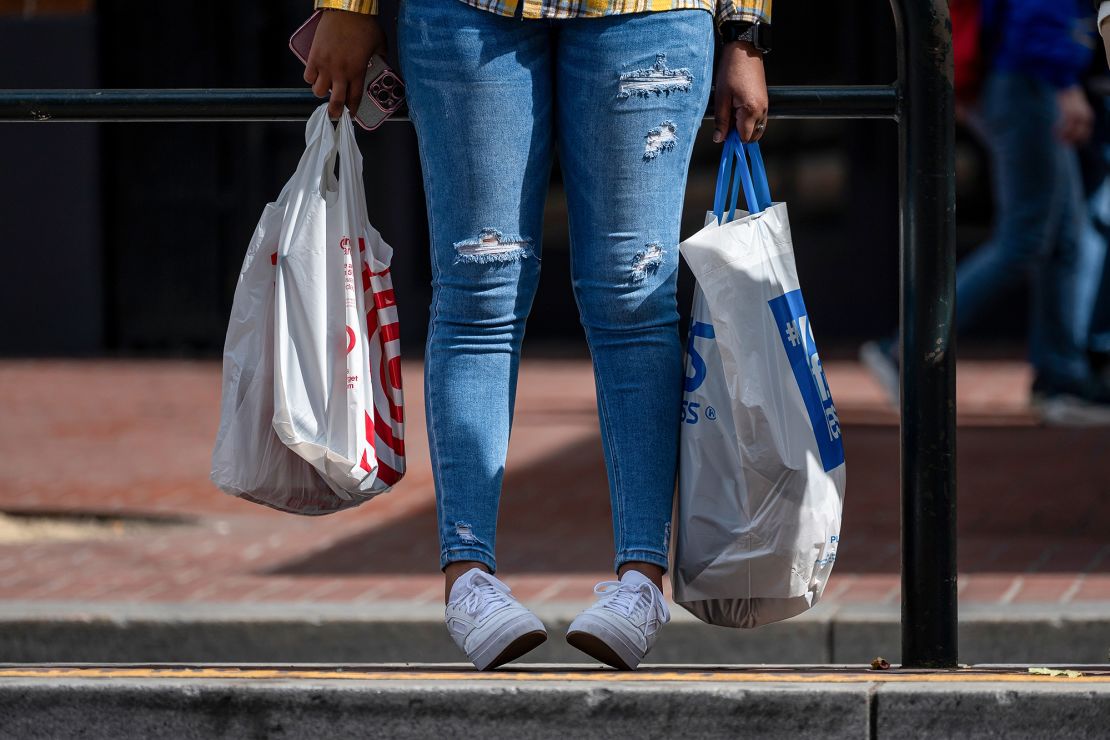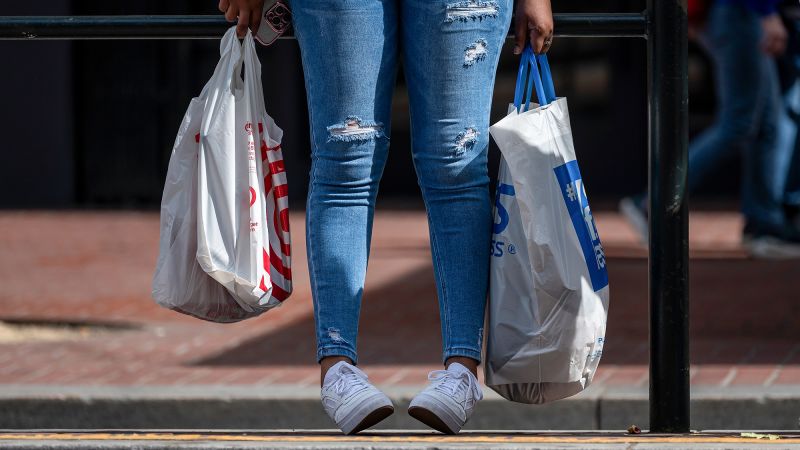New York
CNN
—
Millennials have been through a lot.
Many of the generation were young adults when the Great Recession began, and to this day, they struggle to buy homes and pay off student debt. Now these jaded millennials are sharing their wisdom with Gen Z on TikTok, posting preparation tips and no-buy lists to ease the minds of young people who could be entering their first major recession as adults.
President Donald Trump’s whiplash-inducing policy changes have everyone warning about dire consequences for the US economy, from Fed Chair Jerome Powell to Goldman Sachs analysts. The Trump administration’s tit-for-tat escalation in the global trade war could lead to a recession for both the US and the world this year, JPMorgan said this month. It comes during an already unprecedented string of events for young people — people in their early 20s are earning less and have more debt, already battered by the Covid-19 pandemic and an onslaught of inflation.
So, the United States might not be in a recession right now, but its youngest working adults are still anxious — and seeking advice from their older peers.
When scrolling through TikTok, Sasha Whitney, 37, noticed Gen Z users shared the same feelings over an impending recession: “downtrodden, frustrated, very bleak and hopeless about the future.”
It’s a stark difference from when Whitney graduated from college in 2009 during the Great Recession, before social media became as pervasive and when Barack Obama, who ran his campaign on the concept of hope, just took office.
“When I talked to some of my millennial friends, they were like, ‘Yeah, we were broke. We were struggling,’” said Whitney, whose primary audience on TikTok is aged 18 to 25 years old. “However, we weren’t trying to keep up with the Joneses. You weren’t trying to portray a lifestyle for social media.”
Other millennials joked on social media about the sense of community they had during the recession, sounding nostalgic for the days of cheaper liquor, wearing business casual and endless replays of feel-good recession pop. “If you want to know how we survived, yeah we blacked out,” one millennial user quipped on TikTok.

But millennials did share their real financial struggles. After graduating, Whitney lived at home for a bit, then moved out, paying rent and student loans and leaving $20 a week for groceries. She worked in retail immediately out of college and figured out how to handle her finances through trial and error.
“I’m buying packs of tuna, frozen vegetables, bread, putting it in the freezer. That’s when it really hit me that something’s going on,” she said.
Whitney’s TikTok video walked viewers through some recession tips, including: taking whatever job you can get, living below your means, and deleting payment platforms like Klarna and After Pay. Other videos from millennials on TikTok offer recession preparation guides, such has having an emergency savings fund and updated resumes.
“If I can give somebody advice, especially younger folks, that’s what I’m going to do,” Whitney said.
Many TikTokers are vowing to do one thing: limit their spending.
For Imani Smith, a 29-year-old in Dallas, that means password-sharing subscriptions with her friends and cutting back on going out to eat.
Beauty maintenance is also a high cost, so she buys press-on nails from Amazon instead of going to the salon. Salon owners are reporting more requests for “recession blonde,” cheaper, more low-maintenance hairstyles.
And despite the famous lipstick index — the theory that small “treat yourself” purchases uptick during economic downturns — social media users have promised to cut out small purchases like expensive lip balms and candles.
“I want to (save) and build a practice of doing it before I have to do it out of basic necessity,” Smith, who described herself as in between a Gen Z and millennial, told CNN. She added that she uses TikTok, like many young people, as a search engine. In a video on TikTok, she asked viewers who were adults in 2008 whether her recession plan was good enough.

When people sense their budgets contracting, they have to decide what they’re going to spend on, Simon Blanchard, a professor at Georgetown University’s McDonough School of Business, said to CNN. He added it may be a good time to self-reflect if you have enough emergency savings, whether we’re in a recession or not.
People tend to cut an entire category of spending rather than a little bit of everything, so it doesn’t seem like they have to downgrade on every part of their life, Blanchard said.
“And maybe those small indulgences like lipstick are the things that might be first to go because they’re just non-essential,” Blanchard said.
For Gen Z, more anxiety and uncertainty
Despite the advice from millennials to let go and live, as all the great music of the mid-2000s encouraged, anxiety still persists among many young people.
After talking to people who lived through 2008, Smith said that “they might’ve lost their jobs, but the cost of living was so low back then that they could have picked up something retail and held themselves afloat for a while,” emphasizing her worries for the job market right now.
For many young people, their anxiety goes back to the Covid-19 pandemic. Smith had just started working her first corporate job when the pandemic hit, triggering the shortest recession in US history that ended after two months in April 2020.
“It put me in the mindset that I need to be prepared for anything,” Smith said. “Because none of us could have anticipated Covid-19 and the lasting effects that had.”
CNN’s Lacey Russell contributed to this report.

